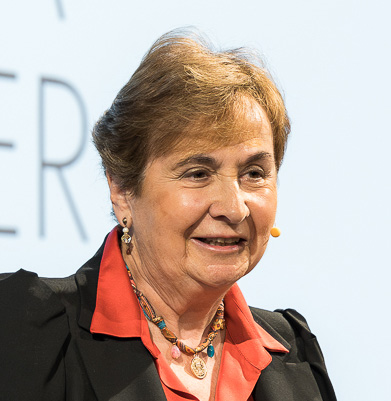By Maravillas Rojo, President of Abacus, former Secretary General for Employment of the Spanish Government,
and Deputy Mayor and City Councillor of Barcelona for over 10 years (1995-2007)
The European project, and democratic projects in general, are going through a complex time. The rise of authoritarianism, represented by figures like Putin or Benjamin Netanyahu, thrives on polarization in all societies. Since the early steps of the European Union, cooperativism has been part of the Union’s project: the 1957 Treaty of Rome already recognized the importance of cooperative enterprises for the nascent economic community.
Today, while some impose the barbarity of a world without rules, where people and their rights matter little—as we see in the military aggressions in Gaza or Ukraine—we, from the social economy and cooperativism, firmly uphold the defense of democracy, culture, diversity, and even, in these harsh times, the duty to defend joy, without which hope cannot exist. We want to and need to do so because it is part of our DNA, because we represent people-centered companies born from civil society to respond to collective challenges. We must defend the European project, its unity in diversity, built around shared values.
At Abacus, the cooperative I have chaired since 2017, we build the future by promoting education and culture—two strategic sectors. This has been our mission since 1968, when a group of individuals—teachers and families—asked themselves how to contribute to the necessary pedagogical renewal that would lead to a more active and high-quality education system. They innovatively organized themselves as a collective project—a consumer cooperative—because they believed in the transformative power of education, culture, and cooperativism.
Fifty-seven years after its founding, Abacus is a comprehensive cooperative with more than one million consumer members and nearly 600 worker-members, with revenues exceeding 125 million euros. Thanks to the legacy of the pioneers who created Abacus, today we have 47 bookstores in Catalonia, Valencia, and the Balearic Islands, along with an efficient online store. A model in full growth with which, humbly but determinedly, we aim to stand up to tech giants like Amazon, which pose a real threat to our way of life, our cities, and local commerce. Moreover, we aim to be allies of the independent bookstore network, the backbone of the European cultural ecosystem, establishing mechanisms for collaboration and support, as we have already done with the La22 bookstore in Girona.
In line with our roots, Abacus Educación is our division serving the educational community. A project that revives the spirit and vocation of our founders, people like Marta Mata or Juli Vela, who sought to support teachers in their mission to educate, by offering the best materials and tools, along with continuous professional development. A project to help teachers adapt to changes and respond to students’ needs in areas such as reading comprehension or teaching subjects like science, math, and technology. At Abacus, we want to serve the educational community—we want to be a meeting point—because we know they are key to achieving universal, quality education.
As a cooperative, we are committed today to creating cultural content that allows us to illuminate, imagine, and build a better future. We have eleven publishing imprints, and we produce films, series, and documentaries that reflect the reality of our societies, our history, and the ongoing and past struggles for emancipation, dignity, and freedom. We organize exhibitions and events, and publish magazines and local press. In short, we build collective imaginaries and reflect reality through the lens of cooperativism. A few days ago, we premiered the documentary “El Plat Blanc“, telling the story of the Barcelona restaurant Disfrutar, chosen as the best restaurant in the world by the 50 Best list in 2024. A few weeks ago, coinciding with Sant Jordi and Book Day, we inaugurated Casa Abacus: a space in the heart of Barcelona dedicated to the creation of cultural content.
I believe now is the time to make more visible the transformative capacity of cooperatives: enterprises owned by people and serving the common good. It is also time to build European alliances that allow us to grow and project ourselves as a business model for the future, in service of our communities. I have no doubt that cooperatives are a key piece in building Europe’s strategic autonomy and contributing to the resilience of our communities. They are essential to strengthening our democracies and fostering citizen participation in the major economic transformations underway.
From Abacus, we will continue working to serve the European project, cooperativism, and the social economy.
Image: Maravillas Rojo. @ Abacus / Roser Gamonal.







